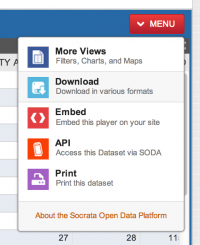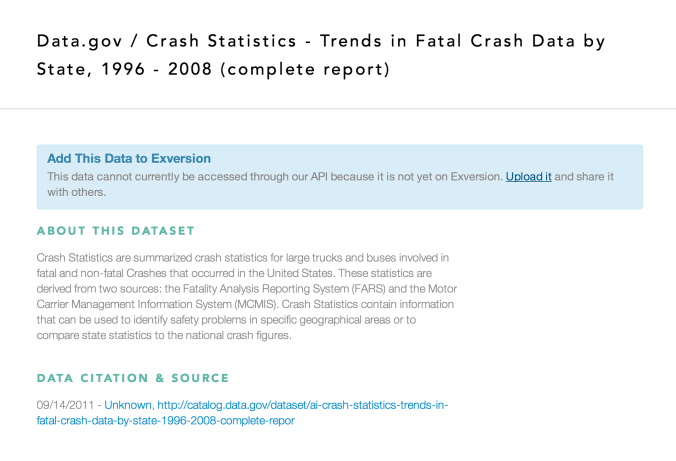
Image by Stamen Maps
Earlier this week we gave an impromptu and quick overview of Exversion at #NYC Beta‘s meetup. The majority of the talk revolved around some of the idiosyncrasies of PLUTO and MapPLUTO, and the audience, a largely geospatial crowd, wanted to know what GIS functionality if any we support.
While all we can say is that geospatial is dear to our hearts, at present all API output is for the time being in JSON. However, if the dataset contains latitude/longitude or x/y coordinates you should be able to use it with popular mapping libraries such as leaflet, and D3.js, as well as Google Maps, Bing Maps, et al., allowing you to map those JSON objects though our API.
An sample dataset that this would work with is one we featured during this years Publishing Hackathon, held during Book Expo America, Banned and Challenged Books.
 When we run a simple search query on it, or look at the data preview on the dataset’s page, we see that it contains both latitude and longitude columns, along with other information about the challenged title, city, state, challenger, and other details.
When we run a simple search query on it, or look at the data preview on the dataset’s page, we see that it contains both latitude and longitude columns, along with other information about the challenged title, city, state, challenger, and other details.
The coordinates in the dataset, simply allow us to load a generic JSON layer, and display points on a map, such as in this Publishing Hackathon example by Jackon Lin who used the Banned and Challenged Books dataset in his visualization. *Displayed at the bottom of the page.
While this for the time being isn’t a complete answer to a GIS Data API, it’s a step in the right direction, and as we develop Exversion further, we hope to build in geospatial functionality that will make is easy, simple, and intuitive to import data hosted on the platform to a wide suite of geospatial data visualization tools.
And for the time being, if you build any apps, geo or other on the platform, we would love to see them. So please send your work to info @ exversion.com and we’ll try to feature as many of these as we can.
Now go click on that map and see what books people have tried to ban in the United States.













